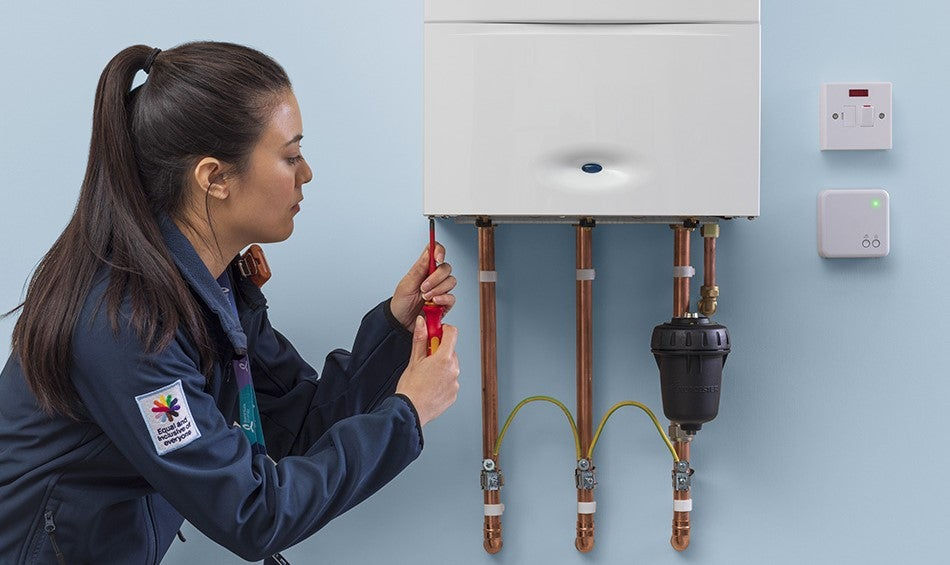When Should You Repair or Replace Your Boiler?
- Pralay Unitel
- Jul 15, 2024
- 3 min read
Ensuring your home's boiler operates efficiently is crucial for comfort, especially during cold UK winters. Over time, boilers can develop issues that affect performance and reliability. Knowing when to repair or replace your boiler can save you from inconvenience and potential safety hazards. This comprehensive guide explores the factors to consider when making this decision, helping you understand the best course of action for your heating system.
Boiler Maintenance
Boilers are essential for heating homes and providing hot water. Regular maintenance is key to prolonging their lifespan and ensuring they operate efficiently. However, despite proper care, boilers can encounter issues that may require repair or replacement.
Signs Your Boiler Needs Attention
1. Age of the Boiler
The age of your boiler is a significant factor in determining whether to repair or replace:
Typical Lifespan: Most boilers last between 10 to 15 years with regular maintenance. If your boiler is approaching or exceeds this timeframe, replacement may be more cost-effective than frequent repairs.
2. Efficiency and Energy Bills
Monitoring your boiler's efficiency and energy bills can provide insights into its performance:
Decreased Efficiency: A decline in efficiency may indicate underlying issues. Newer boilers are more energy-efficient, which can lead to significant savings on energy bills.

3. Frequency of Repairs
Frequent breakdowns and repairs can be a sign that your boiler is nearing the end of its lifespan:
Repair Costs: Compare the cost of repairs with the potential cost of a new boiler. If repairs are becoming frequent and expensive, replacement might be more economical in the long run.
4. Strange Noises and Leaks
Unusual noises such as banging, whistling, or gurgling, as well as water leaks, are indicators of problems:
Internal Damage: These issues could signal internal damage or corrosion, which may require professional assessment.
Factors Influencing Repair or Replacement
1. Boiler Efficiency Rating
Consider the efficiency rating of your current boiler:
Energy Efficiency: Older boilers typically have lower efficiency ratings. Upgrading to a newer, more efficient model can reduce energy consumption and lower heating costs.
2. Safety Concerns
Safety should always be a priority when it comes to boiler operation:
Carbon Monoxide (CO) Leaks: Boilers that emit CO pose a serious health risk. If your boiler shows signs of CO leaks or irregularities, immediate action is necessary.
3. Environmental Impact
Newer boilers are designed to be more environmentally friendly:
Eco-Friendly Options: Consider replacing your boiler with a model that meets modern environmental standards and reduces carbon emissions.
When to Repair Your Boiler
Not all issues require immediate replacement. Consider repairing your boiler in the following scenarios:
Minor Faults: For minor issues that do not compromise safety or efficiency, repairs can extend the lifespan of your boiler.
Cost-Effective: If the cost of repair is significantly lower than replacement and the boiler is relatively new, repairing may be a sensible option.
When to Replace Your Boiler
Replacement may be necessary under the following circumstances:
Age and Efficiency: If your boiler is old and inefficient, upgrading to a newer model can provide better performance and energy savings.
Safety Concerns: Any safety-related issues, such as CO leaks or unreliable operation, warrant immediate replacement to safeguard your household.
Importance of Professional Advice
Consulting with a qualified boiler installer is essential for making an informed decision:
Expert Assessment: A professional can assess your boiler's condition and provide recommendations based on safety, efficiency, and cost considerations.
Installation Expertise: Choose a reputable boiler installer experienced in gas boiler installation, boiler replacement, and boiler service to ensure proper installation and compliance with regulations.
Conclusion
Deciding whether to repair or replace your boiler requires careful evaluation of its age, efficiency, repair history, safety concerns, and overall performance. While repairs can address minor issues and extend the lifespan of your boiler, replacement may offer greater efficiency, improved safety, and long-term cost savings. By understanding the signs that indicate your boiler needs attention and seeking professional advice from a qualified boiler installer, you can ensure your home remains comfortable and efficiently heated throughout the year.
For expert advice and reliable boiler installation services, contact LTH Plumbing & Gas Services. Our team of skilled boiler installers specialises in gas boiler installation, boiler replacement, and boiler service, ensuring your heating system meets the highest standards of safety and efficiency.
Related Article -




Comments